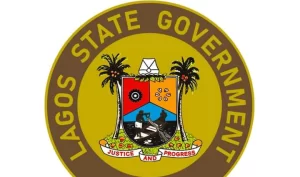
The Lagos Government has concluded plans to adopt the National Building Code as a way of regulating the building industry in the state.
The Commissioner for Physical Planning and Urban Development, Dr Idris Salako, made the disclosure last week during a media parley in Lagos.
Salako stated that the move to domesticate the National Building Code was to produce the Lagos State Building Code and supply the missing link in an existing regulatory framework.
He said the code would provide the much-needed focus on performance standards for buildings in the state as opposed to design standards.
He said, “As a performance-based building code, the Lagos State Building Code covers aspects such as structural stability, durability, protection from fire, access, moisture control, energy control and services and facilities.”
He said that the building code would complement the existing building regulatory system in the state and address the challenges of land use, physical development and urban planning.
Salako added that when operational, the building code would afford the opportunity to address the peculiarities of the state and its different localities with building performance standards, while minimising costs that might arise from possible disasters of flooding, building collapse and fire outbreaks.
He said that the domestication of the National Building Code and its eventual launch as the Lagos State Building Code in the foreseeable future would present another national model from the centre of excellence.
Noting the importance of Information sharing to compliance, he urged members of the press to support the government in popularising the Lagos State Building Code and the process leading to its domestication.
The Special Adviser, E-GIS, Dr Olajide Babatunde, said that the domestication of the National Building Code would give adequate consideration to the peculiarities of Lagos State as opposed to the holistic adoption of its provisions.
Also speaking, the Permanent Secretary, Ministry of Physical Planning and Urban Development, Engr. Abiola Kosegbe, noted that the state government embarked on the initiative and carried out a series of stakeholder engagements and contributions, with the support of the Nigerian Energy Support Programme, NESP.
She explained that the Building Code would ultimately incorporate the Energy Efficiency Code and the Green Building Concept.
































